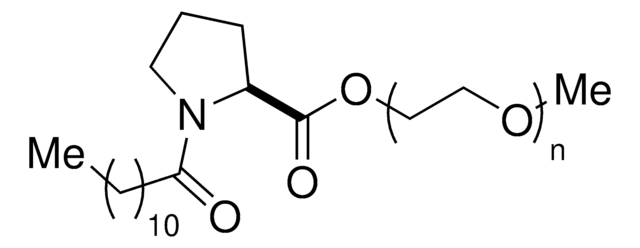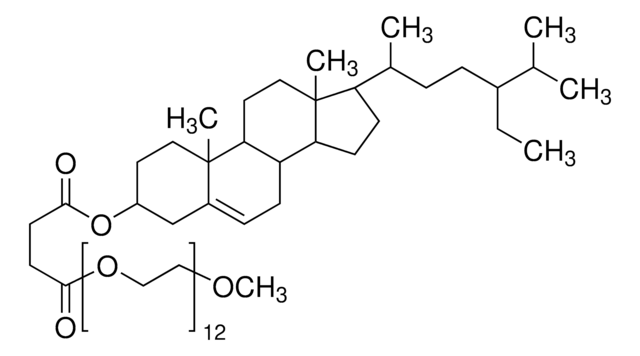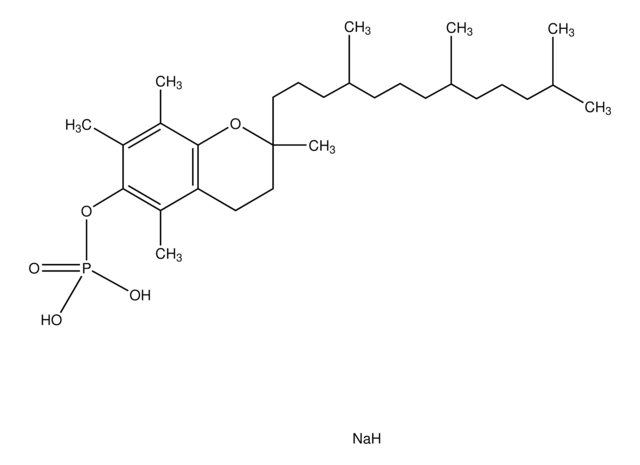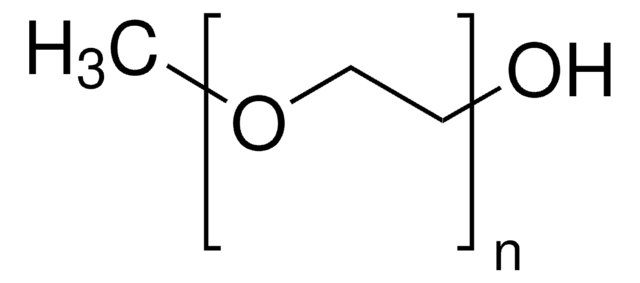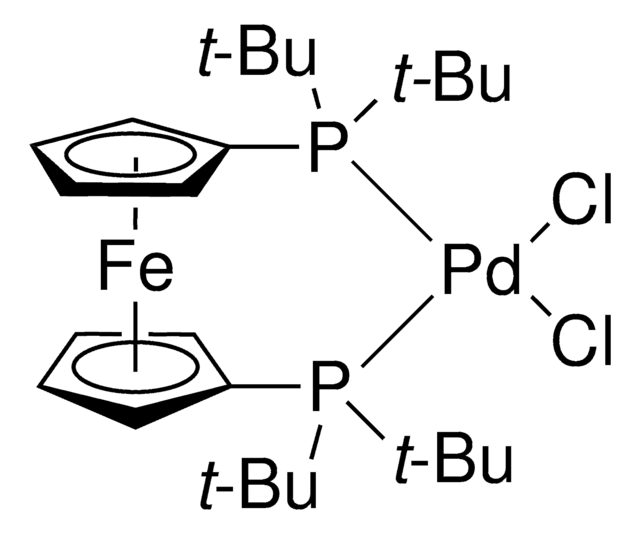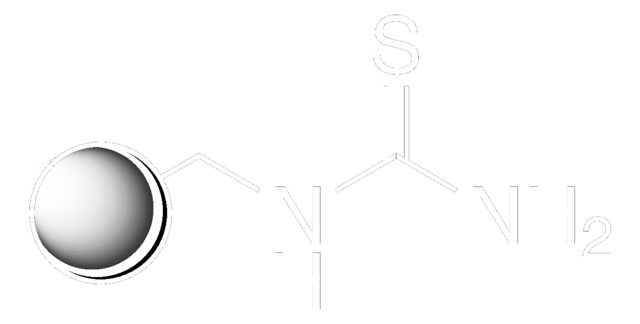763896
DL-α-Tocopherol methoxypolyethylene glycol succinate
Sinónimos:
Polyethylene glycol, TPGS-750-M
About This Item
Productos recomendados
form
powder
Quality Level
reaction suitability
reagent type: catalyst
reaction type: C-H Activation
reagent type: surfactant
greener alternative product characteristics
Catalysis
Learn more about the Principles of Green Chemistry.
sustainability
Greener Alternative Product
transition temp
Tm 29-34
greener alternative category
, Aligned
General description
Application
TPGS-750-M can also be employed in:
- The nucleophilic aromatic substitution reaction of aryl and heteroaryl halides with nitrogen, oxygen, and sulfur nucleophiles under mild conditions.
- The preparation of quinoxaline-2,3 diones from quinoxalinones via C(sp2)-H hydroxylation reaction.
- The intramolecular N-arylation of amines using a copper catalyst.
Other Notes
From milligrams to kilograms: synthetic chemistry following nature′s lead
related product
Storage Class
11 - Combustible Solids
wgk_germany
WGK 3
flash_point_f
Not applicable
flash_point_c
Not applicable
Elija entre una de las versiones más recientes:
Certificados de análisis (COA)
¿No ve la versión correcta?
Si necesita una versión concreta, puede buscar un certificado específico por el número de lote.
¿Ya tiene este producto?
Encuentre la documentación para los productos que ha comprado recientemente en la Biblioteca de documentos.
Los clientes también vieron
Artículos
Micellular catalysis has provided the ability to carry out several commonly used transformations used in the synthetic community to be carried out in water.
Lipshutz and co-workers have recently developed a second generation technology to their original PTS-enabling surfactant based on the polyoxyethanyl-α-tocopheryl succinate derivative, TPGS-750-M.
TPGS-750-M, a second generation surfactant, is useful for room temperature, palladium and ruthenium-catalyzed reactions in water. Reactions include the Heck reaction, Suzuki-Miyaura reaction, Sonogashira reaction, Buchwald-Hartwig amination reaction, Negishi reaction, and olefin metathesis.
Protocolos
Buchwald-Hartwig Amination Reaction in Water at Room Temperature using TPGS-750-M
Nuestro equipo de científicos tiene experiencia en todas las áreas de investigación: Ciencias de la vida, Ciencia de los materiales, Síntesis química, Cromatografía, Analítica y muchas otras.
Póngase en contacto con el Servicio técnico

![[1,1′-Bis(diphenylphosphino)ferrocene]dichloropalladium(II)](/deepweb/assets/sigmaaldrich/product/structures/130/734/8846aa26-1858-458a-998d-8c306c13bf0f/640/8846aa26-1858-458a-998d-8c306c13bf0f.png)
